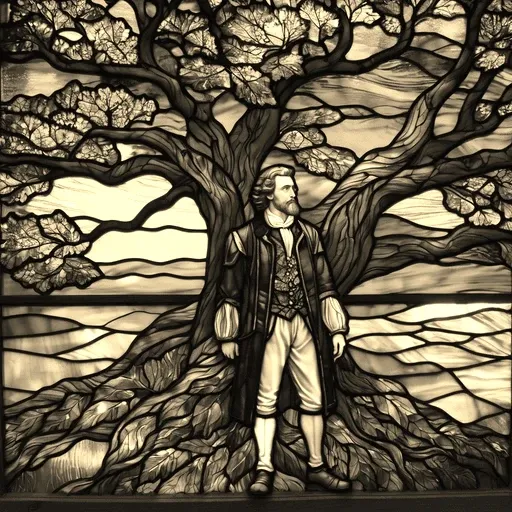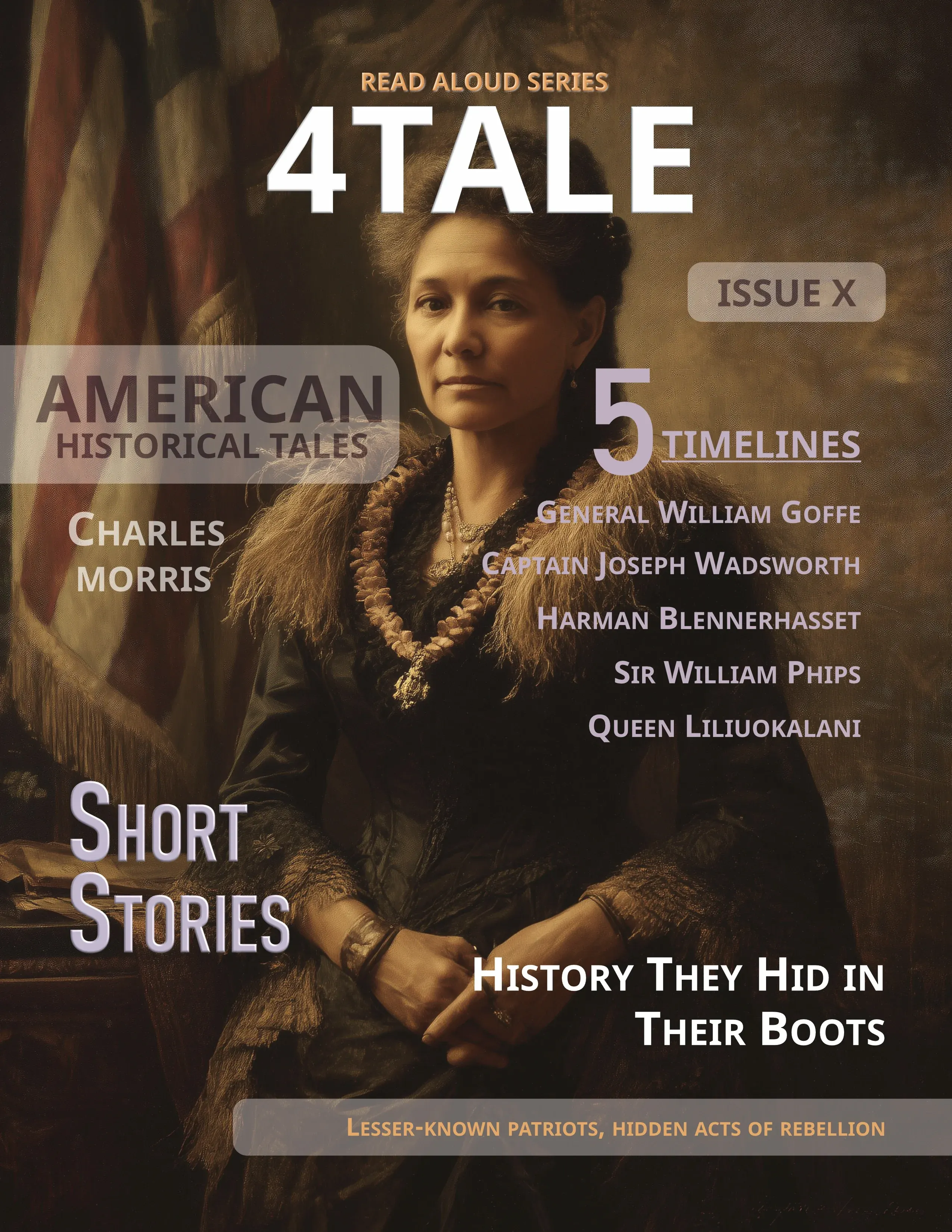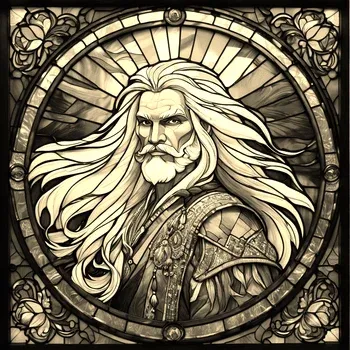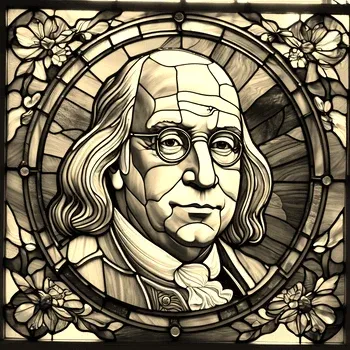Not until James II. became king of England was a determined effort made to take away the liberties of the American colonies. All New England, up to that time, had been virtually free, working under charters of very liberal character, and governing itself in its own way and with its own elected rulers. Connecticut, with whose history we are now concerned, received its charter in 1662, from Charles II., and went on happily and prosperously until James ascended the throne. This bigoted tyrant, who spent his short reign in seeking to overthrow the liberties of England, quickly determined that America needed disciplining, and that these much too independent colonists ought to be made to feel the dominant authority of the king. The New England colonies in particular, which claimed charter rights and disdained royal governors, must be made to yield their patents and privileges, and submit to the rule of a governor-general, appointed by the king, with paramount authority over the colonies.
Sir Edmund Andros, a worthy minion of a tyrant, was chosen as the first governor-general, and arrived at Boston in December, 1686, determined to bring these rampant colonists to a sense of their duty as humble subjects of his royal master. He quickly began to display autocratic authority, with an offensiveness of manner that disgusted the citizens as much as his acts of tyranny annoyed them. The several colonies were peremptorily ordered to deliver up their charters. With the response to this command we are not here concerned, except in the case of Connecticut, which absolutely refused.
Months passed, during which the royal representative aped kingly manners and dignity in Boston, and Connecticut went on undisturbed except by his wordy fulminations. But in October of the next year he made his appearance at Hartford, attended by a body-guard of some sixty soldiers and officers. The Assembly was in session. Sir Edmund marched with an important air into the chamber, and in a peremptory tone demanded that the charter should be immediately placed in his hands.
This demand put the members into an awkward dilemma. The charter was in Hartford, in a place easy of access; Sir Edmund was prepared to seize it by force if it were not quickly surrendered; how to save this precious instrument of liberty did not at once appear. The members temporized, received their unwelcome visitor with every show of respect, and entered upon a long and calm debate, with a wearisome deliberation which the impatience of the governor-general could not hasten or cut short.
Governor Treat, the presiding officer of the Assembly, addressed Sir Edmund in tones of remonstrance and entreaty. The people of America, he said, had been at the greatest expense and had suffered the most extreme hardships in planting the country; they had freely spent their blood and treasure in defending it against savage natives and foreign aggressors; and all this had been done for the honor and glory of the motherland. He himself had endured hardships and been environed by perils, and it would be like giving up his life to surrender the patent and privileges so dearly bought and so long enjoyed.
Argument of this kind was wasted on Sir Edmund. Remonstrance and appeal were alike in vain. It was the charter he wanted, not long-winded excuses, and he fumed and fretted while the slow-talking members wasted the hours in what he looked upon as useless argument.
Night had been drawing near on his entrance. Darkness settled upon the Assembly while the debate went on. Lights were now brought in,—the tallow candles of our colonial forefathers,—and placed upon the table round which the members sat. By this time Sir Edmund's impatience at their procrastination had deepened into anger, and he demanded the charter in so decided tones that the reluctant governor gave orders that it should be produced. The box containing it was brought into the chamber and laid upon the table, the cover removed, and there before their eyes lay the precious parchment, the charter of colonial liberty.
Still the members talked and procrastinated. But it is not easy to restrain the hound when within sight of the game which it has long pursued. Before the eyes of Sir Edmund lay that pestiferous paper which had given him such annoyance. His impatience was no longer to be restrained. In the midst of the long-drawn-out oratory of the members he rose and stepped towards the table to seize the object in dispute.
At that critical instant there came an unexpected diversion. During the debate a number of the more important citizens had entered the room, and stood near the table round which the members sat. Suddenly, from the midst of those people, a long cloak was deftly flung, with such sure aim that it fell upon the circle of blazing candles, extinguishing them all, and in a moment throwing the room into total darkness.
Confusion followed. There were quick and excited movements within the room. Outside, the crowd which had assembled set up a lusty cheer, and a number of them pushed into the chamber. The members stirred uneasily in their seats. Sir Edmund angrily exclaimed,—
"What means this, gentlemen? Is some treachery at work? Guard the charter! Light those candles instantly!"
The attendants hastened to obey; but haste in procuring light in those days had a different meaning than now. The lucifer-match had not yet been dreamed of. The flint-and-steel was a slow conception. Several minutes elapsed before the candles again shed their feeble glow through the room.
With the first gleam of light every eye was fixed upon the box which had contained the charter. It was empty! The charter was gone!
Just what Sir Edmund said on this occasion history has not recorded. Those were days in which the most exalted persons dealt freely in oaths, and it is to be presumed that the infuriated governor-general used words that must have sadly shocked the pious ears of his Puritan auditors.
But the charter had vanished, and could not be sworn back into the box. Where it had gone probably no one knew; certainly no one was willing to say. The members looked at one another in blank astonishment. The lookers-on manifested as blank an ignorance, though their faces beamed with delight. It had disappeared as utterly as if it had sunk into the earth, and the oaths of Sir Edmund and his efforts to recover it proved alike in vain.
But the mystery of that night after-history has revealed, and the story can now be told. In truth, some of those present in the hall knew far more than they cared to tell. In the darkness a quick-moving person had made a lane through the throng to a neighboring window whose sash was thrown up. Out of this he leaped to the ground below. Here people were thickly gathered.
"Make way," he said (or may have said, for his real words have not been preserved), "for Connecticut and liberty. I have the charter."
The cheers redoubled. The crowd separated and let him through. In a minute he had disappeared in the darkness beyond.
Sir Edmund meanwhile was storming like a fury in the hall; threatening the colony with the anger of the king; declaring that every man in the chamber should be searched; fairly raving in his disappointment. Outside, the bold fugitive sped swiftly along the dark and quiet streets, ending his course at length in front of a noble and imposing oak-tree, which stood before the house of the Honorable Samuel Wyllys, one of the colonial magistrates.
This tree was hollow; the opening slender without, large within. Deeply into this cavity the fugitive thrust his arm, pushing the precious packet as far as it would go, and covering it thickly with fine débris at the bottom of the trunk.
"So much for Sir Edmund," he said. "Let him now rob Connecticut of the charter of its liberties, if he can."
Tradition—for it must be acknowledged that this story is traditional, though probably true in its main elements—tells us that this daring individual was Captain Joseph Wadsworth, a bold and energetic militia-leader who was yet to play another prominent part in the drama of colonial life.
As for the Charter Oak, it long remained Hartford's most venerated historical monument. It became in time a huge tree, twenty-five feet in circumference near the roots. The cavity in which the charter was hidden grew larger year by year, until it was wide enough within to contain a child, though the orifice leading to it gradually closed until it was hardly large enough to admit a hand. This grand monument to liberty survived until 1856, when tempest in its boughs and decay in its trunk brought it in ruin to the earth.
What followed may be briefly told. The charter lost, Sir Edmund Andros assumed control, declared the privileges granted by it to be annulled, and issued a proclamation in which the liberties of the colonies were replaced by the tyranny of autocratic rule. The colonists were forced to submit, but their submission was one of discontent and barely-concealed revolt. Fortunately the tyranny of Sir Edmund lasted not long. The next year the royal tyrant of England was driven from his throne, and the chain which he had laid upon the neck of Britannia and her colonies was suddenly removed.
The exultation in America knew no bounds. Andros was seized and thrown into prison in Boston, to preserve him from a ruder fate from the mob. Early in the next year he was shipped to England. Captain Wadsworth withdrew the charter from the hiding-place which had safely kept its secret until that hour, and placed it in the hands of the delighted governor. Jurists in England had declared that it was still in force, and the former government was at once resumed, amid the most earnest manifestations of joy by the populace.
Yet the liberties of Connecticut were soon again to be imperilled, and were to be save once more by the intrepid daring of Captain Wadsworth.
It was now the year 1693. William of Orange had been for some years on the English throne. While far more liberal than his predecessor, his acts had somewhat limited the former freedom of the New England colonies. He did not attempt to appoint royal governors over these truculent people, but on Governor Fletcher, of New York, were conferred privileges which went far to set aside the charter rights of the neighboring colony.
In brief, this royal governor was given full power of command over the militia of Connecticut, an act in direct contravention of the charter, which placed the military control in the hands of the colonial authorities. Fletcher pressed his claim. The governor indignantly refused to yield his rights. The people ardently supported him.
Filled with blustering indignation, Governor Fletcher left New York and came to Hartford, determined that his authority should be acknowledged. He reached there on October 26, 1693.
He called upon the governor and other authorities, armed with the royal commission, and sternly demanded that the command of the militia should be handed over to him.
"You have played with me in this matter," he asserted. "Now I demand an answer, immediate, and in two words, Yes or No. And I require that the militia of Hartford shall be instantly ordered under arms."
"As for the latter, it shall be as you wish," answered the governor "As for the former, we deny your authority. Nor will I, as you suggest, consent to hold command as your representative."
The train-bands were ordered out. The demand had been expected, and no long time elapsed before these citizen-soldiers were assembled on the drill-ground of Hartford,—an awkward squad, probably, if we may judge from the train-bands of later days, but doubtless containing much good soldierly material.
At their head stood their senior officer, Captain Wadsworth, the same bold patriot who had so signally defeated a royal governor six years before. He was now to add to his fame by as signally defeating another royal governor.
When the New York potentate, accompanied by the governor and a number of the assemblymen, and by the members of his staff, reached the place, they found the valiant captain walking up and down before his men, busily engaged in putting them through their exercises.
Governor Fletcher stepped forward importantly, produced his commission and instructions, and ordered them to be read to the assembled troops. The person to whom he handed them unfolded the commission, advanced to the front of the line, and prepared to read. He did not know with whom he had to deal.
"Beat the drums!" cried Captain Wadsworth, in a stentorian voice.
Instantly there broke out a roar that utterly drowned the voice of the reader.
"Silence!" exclaimed Fletcher, angrily advancing.
The drums ceased their rattling uproar. Silence once more prevailed. The reader began again.
"Drum! drum, I say!" thundered Wadsworth.
Again such an uproar filled the air as only drum-heads beaten by vigorous arms can make.
"Silence! silence!" cried Fletcher, furiously. The drums ceased.
"Drum! drum, I say!" roared Wadsworth. Then, turning to the governor, and handling his sword significantly, he continued, in resolute tones, "If I am interrupted again I will make the sun shine through you in a minute."
This fierce threat ended the business. Governor Fletcher had no fancy for being riddled by this truculent captain of militia. King William's commission doubtless had its weight, but the king was three thousand miles away across the seas, and Captain Wadsworth and his trainbands were unpleasantly near. Governor Fletcher deemed it unwise to try too strongly the fiery temper of the Hartford militiaman; he and his suite returned hastily to New York, and that was the last that was heard of a royal commander for the militia of Connecticut.







